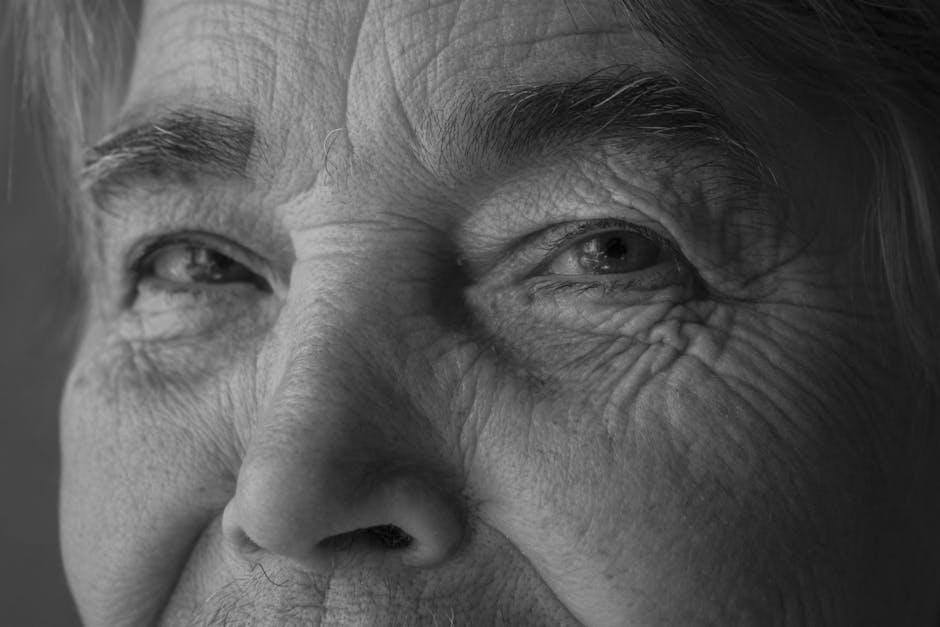In the grand tapestry of life, where time etches its mark upon every living creature, the human skin tells a tale of beauty, resilience, and sometimes, betrayal. As we age, our skin transforms—a natural evolution that speaks of wisdom gained and experiences cherished. Yet, lurking beneath the surface is an intricate and often overlooked web of biological influences that can hasten this journey, casting an unexpected shadow over our youthful glow. At the heart of this phenomenon lies a powerful and mysterious force: hormones. These invisible orchestrators of our body’s symphony play a pivotal role in our overall well-being, but when they dance out of rhythm, they can accelerate the clock, leading to premature skin aging. In this exploration, we delve into the unsettling connection between hormones and the aging process, unraveling the science behind this complex relationship and empowering you with knowledge to reclaim control over your skin’s destiny.
Unmasking the Hormonal Culprits Behind Early Skin Aging

As we delve deeper into the complex interplay of hormones and their impact on skin health, it’s crucial to highlight some key hormonal players that can accelerate the aging process. Estrogen, for instance, is known for its vital role in maintaining skin thickness and elasticity. A decline in estrogen levels, commonly seen during menopause, can lead to a decrease in collagen production, resulting in sagging skin and the formation of fine lines. Meanwhile, cortisol, the notorious stress hormone, can wreak havoc on your skin by breaking down collagen and elastin fibers, essential components that keep your skin firm and youthful.
- Estrogen: Vital for skin elasticity and thickness.
- Cortisol: Accelerates collagen breakdown during stress.
- Testosterone: Excess levels can lead to oily skin and acne.
- Insulin: Fluctuations can exacerbate inflammation and aging.
Additionally, testosterone levels can also influence skin conditions. While necessary for overall health, an excess can lead to increased oil production, resulting in acne and potentially leaving scars that contribute to an aged appearance. Furthermore, insulin, primarily known for its role in blood sugar regulation, can also have a significant impact on skin health. Fluctuating insulin levels can lead to inflammation, which in turn accelerates the aging process. Understanding these hormonal influences is crucial for devising effective skincare strategies that combat premature aging at its root.
Decoding the Science: How Hormones Accelerate the Aging Process
In the intricate ballet of human biology, hormones play the role of both maestro and dancer. As we age, the delicate balance of these chemical messengers can tip, leading to changes in our skin that are often unwelcome. Estrogen, for instance, is a key player in maintaining skin thickness, hydration, and elasticity. As its levels decline with age, the skin may become thinner and more prone to wrinkles. On the other hand, cortisol, the infamous stress hormone, can accelerate collagen breakdown, contributing to sagging and the formation of fine lines.
Beyond these well-known hormones, there are other surprising contributors to premature aging:
- Thyroid hormones: Essential for skin cell turnover; imbalances can lead to dry, flaky skin.
- Melatonin: Known for regulating sleep, it also acts as an antioxidant that fights free radicals.
- Insulin: High levels can cause glycation, which weakens collagen and elastin fibers.
Understanding the multifaceted role of hormones in skin aging empowers us to make informed decisions about skincare and lifestyle choices, potentially slowing down the clock on our skin’s aging process.
Expert-Backed Strategies to Combat Hormonal Skin Aging
When tackling the challenges of hormonal skin aging, adopting expert-backed strategies can significantly enhance your skin’s resilience. One of the primary recommendations is to incorporate a balanced skincare routine that includes gentle cleansers, antioxidants, and retinoids. These ingredients work synergistically to promote collagen production and protect against environmental damage. Dermatologists also emphasize the importance of hydration; integrating hyaluronic acid and ceramides can help maintain the skin’s moisture barrier, essential for youthful-looking skin.
Beyond topical treatments, experts advise adopting a holistic lifestyle approach to combat hormonal aging. This includes maintaining a balanced diet rich in omega-3 fatty acids, vitamins, and minerals that support skin health from within. Regular exercise and stress management techniques like yoga and meditation can also play a pivotal role in regulating hormonal imbalances. Lastly, don’t underestimate the power of a good night’s sleep; it’s during these hours that the skin repairs itself, making adequate rest a crucial component in your anti-aging arsenal.


